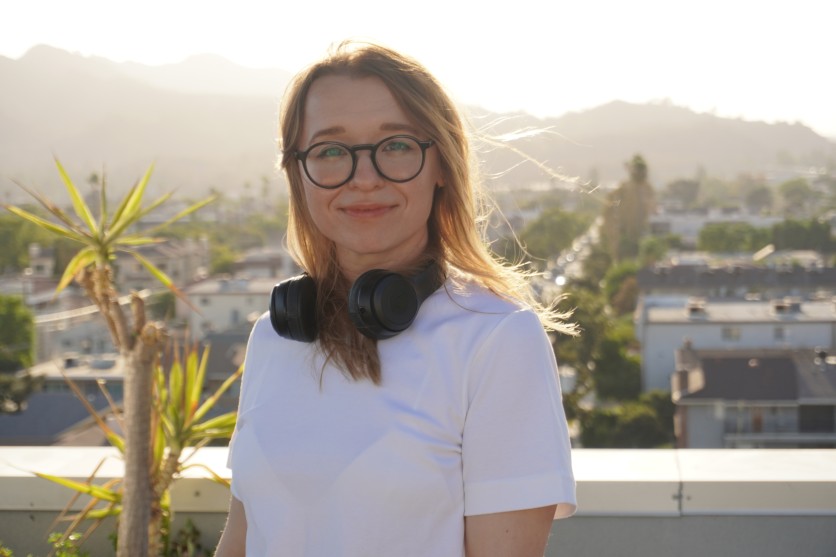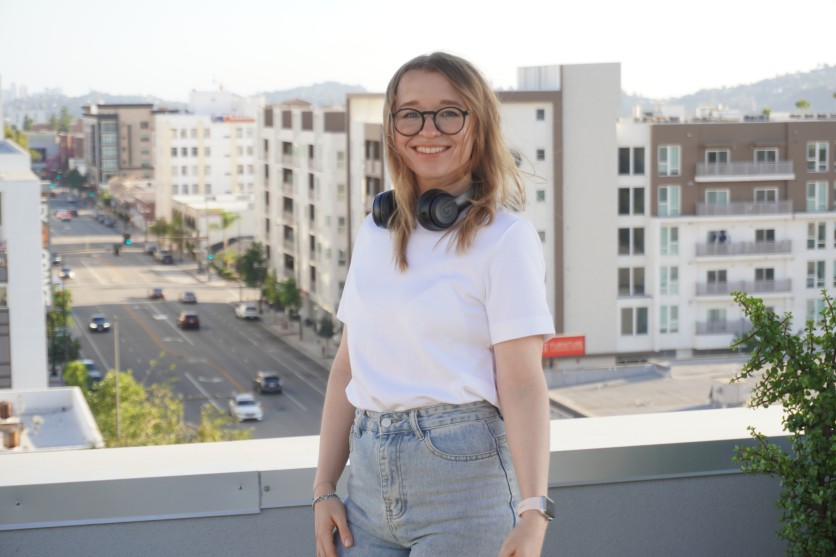
The development of AI technologies is both impressive and unsettling. It seems like anyone could find their voice or image used in a random video on YouTube. However, the platform is beginning to implement stricter measures against the rapid growth of AI-generated content. In early September, YouTube announced a new tool in its Content ID system, which tracks copyrighted material on the platform. The new feature aims to detect audio tracks that mimic someone's voice.
In 2023, the world witnessed a striking example of how AI-generated content could compete with real songs on the charts. A track featuring AI voices imitating Drake and The Weeknd went viral on social media, racking up hundreds of thousands of plays just a few days before it was removed from all platforms. Earlier this year, more than 200 musicians, including Billie Eilish, Nicki Minaj, Stevie Wonder, and R.E.M., signed an open letter calling for protection against such AI imitations.
In addition to the new features in Content ID, YouTube is developing technology to identify AI-generated video content, particularly those that use the likeness of celebrities and influencers. Does this signal a war on artificial intelligence? How actively are million-subscriber channels using AI today? Alisa Kunitsyna, founder and the head of the Mogol TV channel—which is dedicated to historical facts, scientific discoveries, and fascinating places around the world—shared her insights. The channel, awarded both Gold and Silver Play Buttons, has over 5 million subscribers.
With the rise of AI-generated content and recent news indicating that YouTube is tightening its regulations on AI usage, it seems we've reached a tipping point. How often do you use these technologies, and what's your opinion on utilizing AI in video creation?
If you upload a video that uses AI, often you must label it as such. This label will be visible and, in my experience, can impact views. I believe this is because people tend to trust AI-generated content less. That's why I choose not to use AI-generated audio or video at all.
Another reason is current AI technology isn't advanced enough to create serious content, and my channel has an educational focus. For instance, if you ask AI to write a script on a historical topic, it's likely to include inaccuracies because it pulls information from the internet, including unreliable sources. So, I can't rely on it for research or scriptwriting.
Are there other stages of video production where you think AI could be useful? For example, when you're gathering viewer statistics or brainstorming future video topics?
At the moment, AI is helpful in very specific tasks. For example, I'm developing new English-language projects through my production company, Broken Streetlights, and I write the scripts myself. As a non-native English speaker, I sometimes rely on AI for grammar checks, which it does well. However, I believe that for a channel to thrive, its creator must be fully involved and continuously analyzing the market, regardless of the tools they use to achieve this. I always choose the topic and create the content plan myself because, after years of experience, I understand what resonates with my audience.
Let me dive you in in the process.
I continuously assess the market to know what my audience is watching, their age demographics, and what similar YouTube channels and streaming platforms like History and Discovery are producing. After picking a topic, I dive into research—the most challenging and time-consuming stage, akin to journalism. I steer clear of conspiracy theories, seeking scientific evidence and reliable sources like The New York Times, The Atlantic, National Geographic, and Discovery. For some topics, I read entire books, sometimes hundreds of pages, just for one video.
Once I have a clear vision of the video, I plan the thumbnail—an image that represents the main message—keeping it in mind as I write the script. I handle all my scriptwriting myself. While the voiceover is being recorded, I gather materials for editing. Then comes the crucial upload process: adding tags and creating a description to optimize visibility with YouTube's algorithms. I closely monitor the click-through rate (CTR) for the first two days—the ratio of times YouTube recommends the video to how many clicks it gets. A CTR of 7–8% or higher is ideal. If it falls short, I change the thumbnail and monitor the performance again.
In the future, AI could become an important tool for visual storytelling. My channel focuses on historical topics, and a common challenge is how to visually present this material. For instance, when discussing Ancient Egypt, there are no photos or videos from that era, so we have to get creative. Full-scale reenactments are impractical due to budget constraints; while my channel competes for views with Netflix and the History Channel, I don't have the same resources.
It would be incredibly convenient if AI could be used to visualize these stories. However, for that to happen, not only do the technologies need to improve, but YouTube must also adopt a more favorable attitude toward AI-generated content. For now, the trend seems to lean in the opposite direction. But I'm not concerned; I've learned to create engaging content with minimal budgets that still gain millions of views, even without AI.
Could AI theoretically help predict which videos are likely to get a lot of views and which ones may not be worth the effort?
You can analyze the market and viewer behavior to forecast views, but predicting how YouTube's algorithms will respond to a video is nearly impossible. It's similar to predicting box office hits in the film industry: sometimes, a blockbuster with major stars fails despite high expectations. Similarly, even channels with millions of subscribers can post videos that underperform.
On the other hand, I've had videos on topics that I didn't expect to perform well that were picked up by the algorithms and reached a large audience. I believe AI can help boost views on channels. What I mean is that YouTube already uses AI tools to analyze viewer behavior, and I suspect these insights contribute to creating more in-depth and detailed analytics tools for creators. Using these analytics is one of the key factors for success on the platform.
Your Mogol TV channel has been active for nine years. How does content creation for YouTube today compare to that time? What was the platform like nine years ago, and what were the challenges of growing a channel?
The channel has essentially grown alongside YouTube itself. In the early days, high-quality content and creators were just beginning to emerge, while most videos were amateurish—simple two-minute slideshows or home videos—with little adult viewership. Although Monetization existed, its scale was nothing compared to today. Monetization developed as adult viewers and advertisers started coming to the platform. I believe channels like mine helped develop YouTube by attracting a mature audience. About 97% of my audience is over 18.
My channel started with a couple of short videos a week, around 3–4 minutes long. At the time, that was an acceptable length, as people didn't expect TV-level quality on YouTube. This expectation has dramatically changed; YouTube now surpasses leading streaming platforms in views, and viewers expect high-quality content from creators. While my earlier videos were short, they've evolved into mini-documentaries with professional editing, sound design, and storytelling techniques used by large studios with multimillion-dollar budgets.
Nine years ago, probably a few thought of YouTube as a platform to achieve global success as a creator. But now streaming services are signing contracts with YouTubers to produce content. YouTube has evolved from a site for amateur video into a top-tier streaming platform with a vast range of topics, niche channels, and advanced analytics tools. Creators have utilized these tools long before streaming platforms caught on. I take pride in my channel being one of the few that has endured for this long, consistently generating millions of hours of watch time each month—even with its educational content, which is often more challenging to produce and promote.

Have you used any promotional tools to increase the popularity of your YouTube content, and do you currently use any? Which ones are the most effective?
When I started, I tried promoting my videos for free on social media, but it didn't have much impact. I saw slightly better results when I advertised my content through other small channels with similar themes. Collaborations can help you tap into a shared audience, and trending topics can provide a boost. However, no amount of advertising or trending videos guarantees long-term success. Much depends on the channel's theme.
In my case, since I work with educational content, production can't happen quickly; researching a single topic can take weeks, making it difficult to chase trends. The upside is that this content remains relevant for years, making it a long-term investment. Some videos may start with low views but eventually reach a million over time.
Promoting content involves various factors, but what really works is consistency, analytics, and improving content quality. You can't afford to take breaks; if you step away for a few weeks, your reach could drop, and you'll have to rebuild it. I stress quality because YouTube has already surpassed giants like Netflix with its multimillion-dollar projects.
With more than 2.5 billion active monthly users—a third of the planet's population—YouTube has become a major player. This year, it was announced that people are watching over 1 billion hours of YouTube content daily on big screens (not phones or tablets). YouTube's share of viewing on TVs is higher than any streaming platform. Viewers now expect content of the same quality that the biggest streaming services offer.
If growing a channel is a 24/7 job, does that mean a content creator must dedicate almost all their time to it? Is Mogol TV your only project right now, or are there others?
I'm responsible not only for my channel but also for content that's translated into five languages. The Mogol TV franchise was acquired by one of the major global media companies for digital creators, Air Media-Tech, and is being adapted for English, Spanish, Polish, Swedish, and Serbian-speaking audiences. Plus, a year ago, I launched a production company, Broken Streetlights, in California, where I'm developing several projects filmed in Los Angeles. My current focus is on expanding international projects on YouTube and breaking into streaming platforms with high-quality content.
Aside from educational content, what type of content do you believe is most promising today?
I think there's an audience for absolutely any topic. Today, countless niche channels attract substantial followings. While the topic is important, how you present it is even more so. Every detail matters, from the thumbnail to the title of the video, and it's essential to consider the specifics of your niche.
In the educational segment, there's a trend toward longer videos. Viewers seem to prefer mini-film-style content over shorter, 10-minute videos. Additionally, YouTube Shorts are very popular right now, and I'd recommend newcomers pay attention to this trend. The platform's algorithms favor shorts, allowing them to quickly attract an audience and drive initial traffic to your channel. Some viewers may only engage with Shorts, while others will go on to watch your longer videos. Plus, Shorts are generally faster to produce due to their length.
Great advice! As a final question, what's one key piece of advice you would give to aspiring content creators?
The most important thing is to genuinely love creating content. With about 114 million active YouTube channels, only around 32,000 have over a million subscribers—roughly 0.028%. Like any creative profession, the chances of grand success are very slim. But if you're truly passionate about what you're doing, it's much easier to stay motivated and keep creating videos, no matter what.
https://www.globalmediainsight.com/blog/youtube-users-statistics/
https://timqueen.com/youtube-number-of-channels/
https://hollywoodgazette.com/youtube-creator-statistics-html/
ⓒ 2025 TECHTIMES.com All rights reserved. Do not reproduce without permission.





